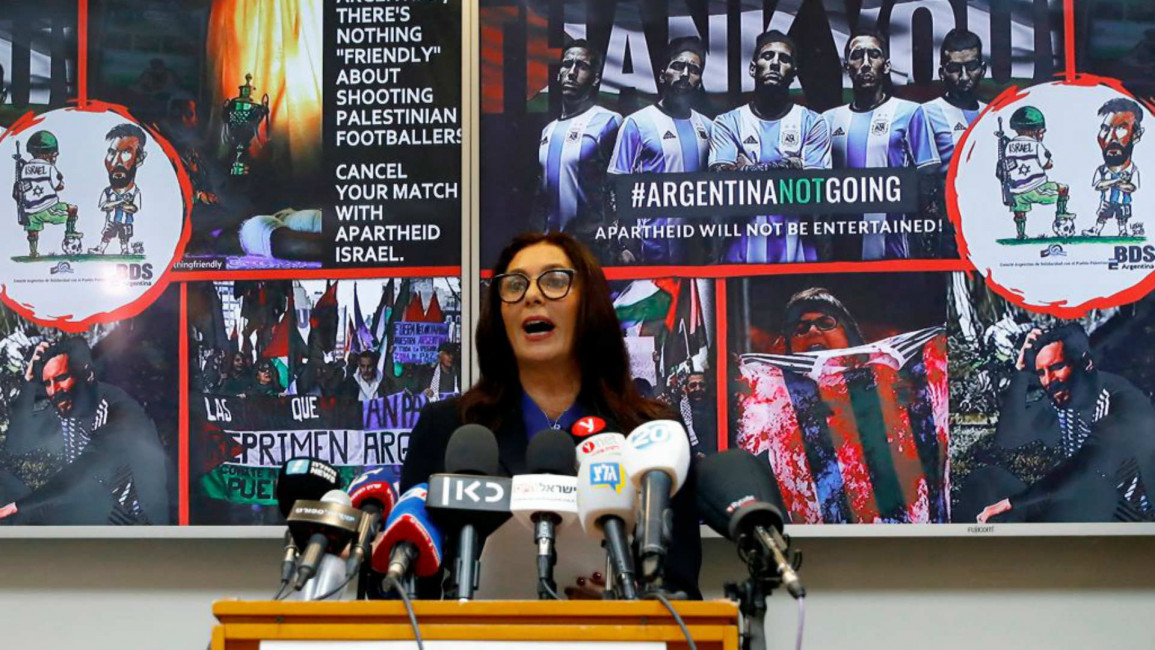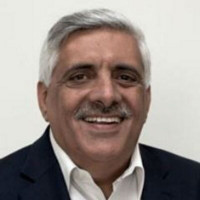
Argentina make a Messi of Israel's anti-BDS campaign
By far the biggest boycott victory yet in the sporting arena, the friendly game - which had been scheduled to take place this Saturday in Jerusalem's Teddy Kollek Stadium, built on top of destroyed Palestinian village al-Malha - was intended as a warm up for the World Cup. But it came following weeks of Israeli snipers killing and injuring Palestinian protesters in Gaza.
Demonstrations as part of the Great Return March marked the 70th anniversary of the Nakba and called for refugees' right of return to be respected, as well as opposing Trump's decision to move the US Embassy from Tel Aviv to Jerusalem. Israel killed over 120 Palestinians, including more than 50 people on 14 May alone, and injured thousands more.
Last Friday, 21-year-old volunteer nurse Razan al-Najjar was fatally shot in the chest by an Israeli sniper while assisting the wounded. In response to this slaughter, Palestinians and their allies have mounted a concerted effort in Latin America and beyond to hold Israel accountable for its crimes.
At the end of May, Colombian pop star Shakira poured cold water on reports she was due to play a gig in Israel. The BDS movement's #NothingFriendly campaign calling for Argentina's football match against Israel to be called off saw protests in Buenos Aires staged by Palestinians and their supporters.
 |
Actors in the global south are willing and able to take a meaningful and significant stand in solidarity with Palestinians |  |
"There is nothing 'friendly' about military occupation and apartheid," a spokesperson for the campaign said. "Don't play Israel until Palestinians' human rights are respected."
Mohammed Khalil, a Palestinian footballer from Gaza shot in both knees by an Israeli sniper, released a video message appealing directly to Argentina captain Lionel Messi and the rest of the team to cancel. Campaign group Avaaz also threw its weight behind the call. Soon after the news broke on Tuesday that the game would indeed be cancelled, it praised Argentina's "brave ethical decision".
Twitter Post
|
This is an unprecedented and watershed moment for several reasons. Firstly, it demonstrates that despite - or perhaps because of - the fact that powerful countries in the global north such as the US and UK remain committed to granting Israel impunity for its crimes, actors in the global south are willing and able to take a meaningful and significant stand in solidarity with Palestinians.
Individual Argentine footballing figures, including players, spoke out explicitly on the decision. Juventus star Gonzalo Higuain said the team had "finally done the right thing".
Likewise, the county's Football Association vice president Hugo Moyano said the cancellation was "a good thing", adding "they kill so many people… as a human being you can't accept that in any way."
Lionel Messi himself has previously shown support for Palestinians. In 2014, he called for an end to the attacks on Gaza in his role as a UNICEF Goodwill Ambassador.
Significantly, this bold decision could open the floodgates for other challenges to Israeli participation in the sporting arena. Two years ago, I asked whether Rio 2016 could be Israel's last Olympics. The next weeks and months will show whether a Rubicon has indeed been crossed.
Above all, the Argentinian move proves decisively that the BDS movement can and will continue to grow from the bottom up, while Israel continues to maintain an apartheid regime and wantonly murder Palestinians.
Popular opinion around the world stands overwhelmingly with the oppressed Palestinian people. Only in elite institutions does commitment to Zionism reflexively hold sway. But political leaders ultimately have limited influence over their societies.
Read more: For real solidarity, stop arming Israel
Illustrating this, Israeli prime minister Benjamin Netanyahu reportedly called Argentina's president Mauricio Macri in an effort to restore the fixture, but was told "there was nothing that I could do". This sentiment was echoed by Jorge Faurie, the Argentine foreign minister, who said he believed the national team "were not willing to play the game". They could hardly be forced.
 |
Popular opinion around the world stands overwhelmingly with the oppressed Palestinian people |  |
The Israeli press has been quick to blame Israeli minister of culture and sport Miri Regev for "a surfeit of arrogance and nationalism". She had been quoted a few days before saying "in this era of BDS, there is nothing more important" than ensuring the match was played in Jerusalem (rather than Haifa, where it was originally scheduled to take place).
The Israeli government's pressure to relocate the game and decision to make it part of Israel's 70th birthday celebrations thus made it highly politicised from the outset.
Yet even without this instrumentalising attempt to "sports-wash" its image, Israel's recent crimes and longstanding maintenance of an apartheid regime make visiting the country inherently political. As long as they persist, major blows like this will continue to contribute to its increasing global isolation.
Hilary Aked is an analyst and researcher whose PhD studies focus on the influence of the Israel lobby in the United Kingdom.
Follow them on Twitter: @Hilary_Aked
Opinions expressed in this article remain those of the author and do not necessarily represent those of The New Arab, its editorial board or staff.




